Does Acupuncture Really Help IVF Outcomes?
Ever since a landmark study1 by German researchers in China in 2002 showing a meaningful improvement in conception success rate when women received a standardized acupuncture treatment immediately before and after embryo transfer, acupuncture has gained significant popularity as an adjuvant treatment during in vitro fertilization procedures. Numerous other studies have confirmed this outcome,2-4 however, some studies have found no significant effect.5-6 Other research has proven effects of acupuncture which are known to directly impact fertility and conception rates, such as ability to thicken uterine lining,7 inhibit biological stress response by releasing endogenous opiods,8 regulate release of hormones from the pituitary,9 relax the uterus,10 and suppress the sympathetic nervous system.8 Most reproductive endocrinologists (doctors who perform IVF, IUI, etc.) now recommend acupuncture treatment to their IVF patients.11 It makes sense within a Chinese medicine framework that just one treatment right before and right after an embryo transfer would be more useful for some women than others. This is because there are different potential Chinese medical causes for infertility, some of which respond more quickly to acupuncture than others. For example, Kidney yang deficiency cannot be improved as quickly with acupuncture as Liver qi stagnation. So, it is worthwhile to get those day-of embryo transfer acupuncture treatments, because they might help and they can’t hurt. However, as most Chinese medicine practitioners would agree, and one meta-analysis recently found: receiving at least 9 treatments as a part of ‘Whole Systems Traditional Chinese Medicine’ (WS-TCM) results in better outcomes than day-of ET acupuncture alone, and better than standard care without any acupuncture. WS-TCM is a multifaceted intervention that may include acupuncture, Chinese herbal medicine, dietary therapy, bodywork (gua sha or tui na), moxibustion, qi gong (breathing exercises), tai chi (movement exercises), and recommendations for vitamins, supplements and lifestyle modifications. In a 2015 meta-analysis, Hullender Rubin et al. reviewed 1231 IVF patient records, comparing birth rates between groups whom received WS-TCM, acupuncture on day of ET only, or standard care (no Chinese medical care). They found that the difference between acupuncture only and standard care was negligible, but that WS-TCM produced the greatest live birth rate.12 Any degree or duration of Chinese medical care is beneficial for IVF outcomes, but planning ahead and optimizing health with a multifaceted approach such as WS-TCM is ideal. 1. Paulus W, Zhang M, Strehler E, El-Danasouri I, Sterzik K. Influence of acupuncture on the pregnancy rate in patients who undergo assisted reproduction therapy. Fertil Steril. 2002;77(4):721-724. 2. Manheimer E., Zhang G., Udoff L., et al. Effects of acupuncture on rates of pregnancy and live birth among women undergoing in vitro fertilisation: systematic review and meta-analysis. BMJ. 2008; 336: 545-549. 3. Dieterle S., Ying G., Hatzmann W., Neuer A. Effect of acupuncture on the outcome of in vitro fertilization and intracytoplasmic sperm injection: a randomized, prospective, controlled clinical study. Fertil. Steril. 2006; 85: 1347-1351. 4. Smith C., Coyle M., Norman R.J. Influence of acupuncture stimulation on pregnancy rates for women undergoing embryo transfer. Fertil. Steril. 2006; 85: 1352-1358. 5. Cheong Y., Dix S., Hung Yu Ng E., et al. Acupuncture and assisted reproductive technology. Cochrane Database. Syst. Rev. 2013; (CD006920) 6. Manheimer E., Van Der Windt D., Cheng K., et al. The effects of acupuncture on rates of clinical pregnancy among women undergoing in vitro fertilization: a systematic review and meta-analysis. Hum. Reprod. Update. 2013; 19: 696-713. 7. Stener-Victorin E., Waldenstrom U., Andersson S., Wikland M. Reduction of blood flow impedance in the uterine arteries of infertile women with electro-acupuncture. Hum. Reprod. 1996; 11: 1314-1317. 8. Andersson, S., Lundeberg, T.. Acupuncture — from empiricism to science: functional background to acupuncture effects in pain and disease. Med. Hypotheses. 1995;45:271–281. 9. Stener-Victorin, E., Jedel, E., Manneras, L., Acupuncture in polycystic ovary syndrome: current experimental and clinical evidence. J. Neuroendocrinol. 2008;20:290–298. 10. Kim J, Shin K, Na C. Effect of Acupuncture Treatment on Uterine Motility and Cyclooxygenase-2 Expression in Pregnant Rats. Gynecol Obstet Invest. 2000;50(4):225-230. 11. Theurer-Barajas S. Assessing the integration of acupuncture in Western reproductive medicine – an online survey of reproductive endocrinologists in the United States. Capstone project for DAOM at Yo San University, Los Angeles, CA. 2013 April. 12. Hullender Rubin L, Opsahl M, Wiemer K, et al. Impact of whole systems traditional Chinese medicine on in-vitro fertilization outcomes. Reprod Biomed Online. 2015;30(6):602-612.
